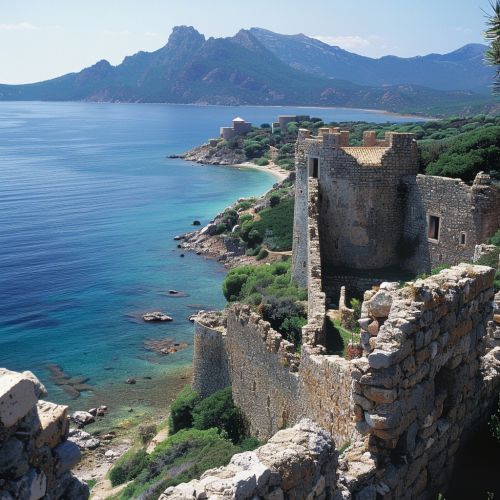Kingdom of Sardinia
History
The Kingdom of Sardinia, also known as the Kingdom of Piedmont-Sardinia, was a state in Southern Europe which existed from the early 14th until the mid-19th century. It was the predecessor state of the modern Italian Republic.
The Kingdom was initially ruled by the House of Savoy, a noble family with origins in the region of Savoy, now part of modern-day France and Italy. The Savoyards ruled over a territory that included not only the island of Sardinia, but also significant territories on the Italian mainland.
Early History
The Kingdom of Sardinia was established in 1324 when King James II of Aragon claimed the territories of the Kingdom of Sardinia and Corsica. The Aragonese kings, however, ruled Sardinia from afar, and the island was often left to its own devices. This led to the emergence of four independent states, known as the "Judicates", which maintained their own laws and customs.


Savoy Rule
In 1720, the Kingdom of Sardinia was acquired by the House of Savoy as part of the Treaty of The Hague. The Savoyards, under the rule of King Victor Amadeus II, sought to modernize the kingdom and strengthen its ties with the rest of Europe. This period saw significant economic and cultural development, with the establishment of the University of Turin and the expansion of the kingdom's road and rail networks.
Unification of Italy
The Kingdom of Sardinia played a crucial role in the Risorgimento, the 19th-century movement for Italian unification. Under the leadership of Count Camillo di Cavour, the kingdom's Prime Minister, Sardinia joined forces with France to wage war against the Austrian Empire, which controlled large parts of Northern Italy. The successful conclusion of this war, known as the Second Italian War of Independence, paved the way for the unification of Italy.
In 1861, the Kingdom of Sardinia was transformed into the Kingdom of Italy, with Victor Emmanuel II, the King of Sardinia, becoming the first King of Italy. The Kingdom of Sardinia ceased to exist, but its legacy lived on in the newly unified Italian state.
Economy
The economy of the Kingdom of Sardinia was largely agrarian, with a heavy reliance on sheep farming and agriculture. The kingdom was also known for its mining industry, with significant deposits of lead, zinc, and silver. In the 18th and 19th centuries, the kingdom underwent significant industrialization, particularly in the mainland territories of Piedmont and Liguria.
Culture
The Kingdom of Sardinia was home to a rich and diverse culture, influenced by its varied history and geographical location. The island of Sardinia maintained its own unique traditions and customs, distinct from those of the mainland territories. The kingdom was known for its literature, music, and art, with notable figures such as the poet Gavino Ledda and the composer Giovanni Maria Delogu.
